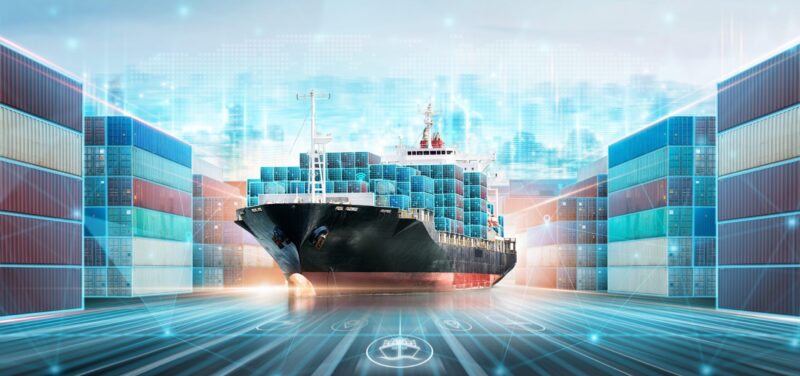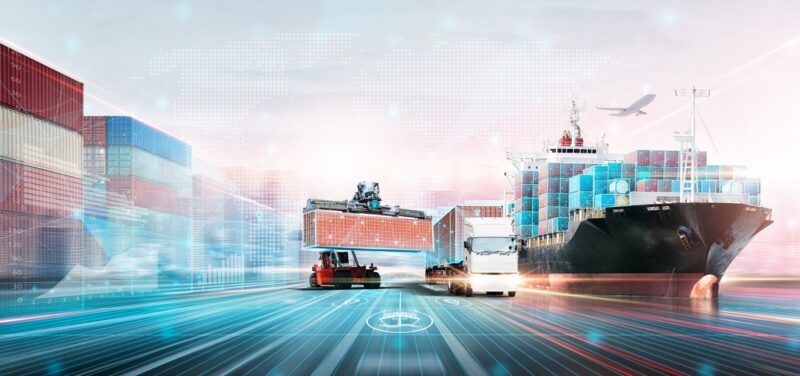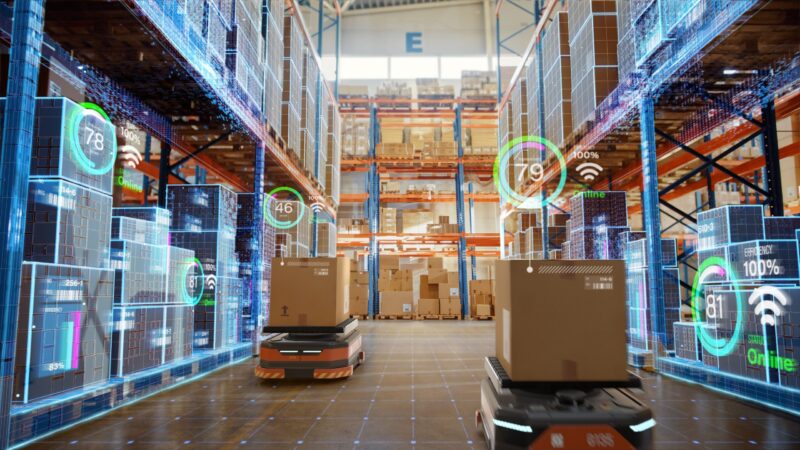
This site
is mobile
responsive

Automation and digital technology are both crucial elements in assisting and enhancing the daily operation of industries today. The logistics industry, in particular, has transitioned in many ways as it evolves towards Industry 4.0 and adopting more E-Commerce activities globally. This revolution is spurred on by the demand for more seamless and efficient logistics services in terms of timeliness, service quality, ease of process, track and trace capabilities, and reliable infrastructure.
The adoption of automation and digital technology would solve many issues related to the logistics industry, such as increased employee well-being and enhanced quality of logistics services. Logistics companies also expect this to boost confidence in their services, as fulfilling customer demands reliably and efficiently can lead to gaining market recognition and more business opportunities.
United Parcel Service (UPS), the largest courier company in the world by revenue, has proven that the key factor in providing efficient logistics services is automation and digital technology. In 2006, the company established its Worldport facility that is equipped with sophisticated automation, robotics and logistics management systems to drive its daily operations. This state-of-the-art facility is known as the world’s largest automated package handling facility with a total size of 5.2 million square feet, that handles 4 million packages a day with a 13-minute average sorting time and is located within the airport site for ease of loading and unloading of parcels. Strong growth in international and domestic express business was the reason behind the establishment of this hub, resulting in UPS having a more efficient logistics operation and fulfilling express parcels within the service level agreement (SLA) time frame.
Meanwhile, due to China’s huge domestic population and being the largest trading nation in the world, logistics companies in China have utilised automation and digital technology in their daily logistics operations to fulfil such a large volume of goods daily efficiently. The country emphasises the use of robotics, automation and logistics management systems. This has been crucial in reducing manpower working hours and human error, enabling the tracking and tracing of goods, and increasing productivity and efficiency in logistics services.
In ASEAN, Singapore is recognised for its logistics competence and timeliness of services and has become the largest trans-shipment hub over the last few years since 2020. This is contributed by both government intervention and private initiatives to drive the Singaporean logistics industry to adopt automation and digital technology. Other factors include its Free Trade Agreements that enable companies across the logistics chain to operate from Singapore to easily access global markets. The Tuas Megaport, that is expected to be fully operational by 2040, will have a significantly increased handling capacity. The key element to the success of this port project is automation and sustainable technology as the port will be equipped with unmanned vehicles, drones, data analytics and driverless trucks for port transport, combined with digital platforms designed to reduce port congestion and bureaucracy.
For Malaysia, two of our ports were listed among the ‘Top 20 World’s Container Ports of 2021’, Port Klang and Port of Tanjung Pelepas (PTP) were ranked 12th and 15th ports, respectively. Despite the pandemic, this showed immense growth performance, proving that Malaysian ports are ready not just to compete regionally, but globally as well.

The Malaysian Government through the 12thMalaysia Plan aspires to become a ‘Transport and Logistics Hub’ in the South-East Asia region by 2025. One of the key areas of focus is enhancing efficiency and leveraging digitalisation in transport and logistics services, at the same time contributing towards improving cargo-handling processes, increasing cargo volume and enhancing trade.
In tandem, the logistics industry in Malaysia is also converging towards adopting automation and digital technology to increase its service efficiency and productivity. Port operators such as Westport Malaysia are heavily investing in digital solutions by its recent launch of its Remote Physical Check System (RPS) the world’s first wireless network system. The RPS upgrades the stowage clerks’ and enables them to perform the verification process remotely, a feature which improves accuracy and reduces waste. Besides digital solutions, Westport Malaysia has plans to invest in automation to cater for the increasing volume of TEUs expected to escalate from 14 million to 30 million TEUs per annum.
In the southern tip of Peninsular Malaysia, Port of Tanjung Pelepas (PTP), the third biggest port in Southeast Asia is also pursuing greater terminal efficiency and aims to remain competitive in this fast-paced landscape. Equipment automation and digitisation becomes the pertinent driver to ensure the port stays ahead. PTP is already adopting digital solutions such as the Opsview Real Time Performance Monitoring System which aims to improve efficiency, increase berth productivity and reduce its operating costs. The system gives PTP the visibility of its live operation performance and all its assets.
MIDA plays a pivotal role in promoting logistics companies to adopt automation and digital technology through several initiatives such as the Integrated Logistics Services (ILS) incentive. The Automation Capital Allowance (Automation CA) and Industry4wrd Intervention Fund also serve to assist companies in implementing automation and digital technology. Besides these fiscal facilities, MIDA also offers e-business linkages platforms via the e-Bizmatch and i-Services portal for both the logistics industry and digital solution providers to get connected and explore various digital solutions and mutually beneficial collaborations.
MIDA has also put forward new proposals to the Government, mainly to increase the adoption of automation and digital technology among domestic companies. In terms of industrial development, the focus is on making sure local industries adopt technology, reduce reliance on foreign workers, increase productivity and are ESG compliant. Logistics companies are encouraged to leverage these facilities and approach MIDA for further assistance to embrace this current age of automation and digital technology and remain competitive in the region.
For more information about the logistic industry, please contact MIDA MIDA Oil and Gas, Maritime and Logistics Services Division at https://www.mida.gov.my/staffdirectory/oil-and-gas-maritime-and-logistics-services-division/
